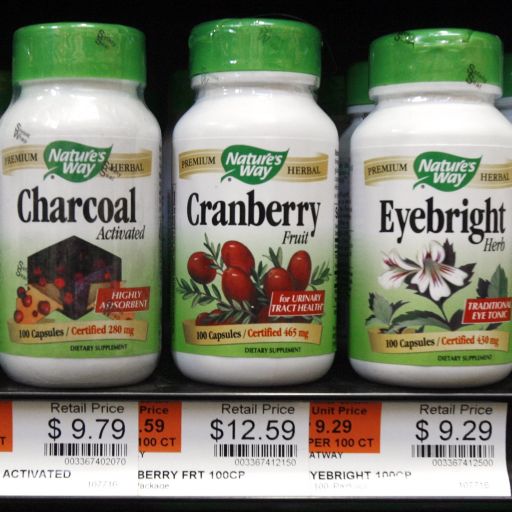Weighing the Pros and Cons: Using a Personal Loan to Tackle Credit Card Debt.
Insuring Your Peace of Mind: An Overview of Common Types of Insurance.
What do you Know About Credit Scores!
What You Need to Know About Secured Credit Card Deposits!
What to do When Your Auto Insurance Claim is Denied?
About Balance Transfer Basics!
There is a significant interest in dietary supplements among people in the United States. Most of them take at least one supplement, usually a multivitamin.
Such supplements cost Americans approximately $28 billion annually. So some questions arise: Which supplements work? Are they safe? Are they worth the cost?
There are hundreds of supplements available. Some come in flashy bottles, advertising their benefits, often in a very over-the-top way.
Many assertions regarding them are unsupported scientifically. Much of what we believe about dietary supplements is myth. Let’s separate the myths from the truth about dietary supplements.
Myth: Supplements are regulated like drugs and approved by the FDA.
Supplements aren’t regulated like drugs at all. Drugs go through strict testing for safety and effectiveness. They have to list any potential side effects. But supplements? They’re like the “wild west” of health products.
Because of the way current laws work, manufacturers don’t need to prove their products are safe or effective. They also face minimal oversight during production.
A 2013 Canadian study tested popular supplements and found that only two out of twelve had the actual ingredient listed.
The rest were contaminated with other plants, mislabeled, or filled with cheap fillers like rice or wheat. And in early 2015, the New York Attorney General’s office did some DNA testing on herbal supplements and found most didn’t contain much of the herb they claimed to.

Myth: Antioxidant supplements like vitamins E, C, and beta-carotene are often thought to prevent heart disease and cancer.
There is no clinical data validating that these particular antioxidants in capsule form have any positive effects on cardiovascular or oncology morbidity.
The rebuttal suggests that lab studies showed some protection from cell free radicals associated with cancerous diseases, thanks to antioxidant substances.
However, quite a number of studies carried out on people do not support this idea. Some studies even reveal that the antioxidant beta-carotene may perhaps increase the chances of lung cancer among cigarette smokers.
Antioxidants might be the superheroes of your diet, but don’t count on them to single-handedly fend off heart disease or cancer. Despite their health hype, there’s no rock-solid evidence that they’re your ticket to dodging serious illness.
Stick to a balanced diet and regular check-ups for real disease prevention. Supplements are great, but they’re not your health’s magic wand!

Fact: Zinc can help you beat the common cold.
Zinc might help with a cold, but it’s not a miracle cure. Research says zinc lozenges or syrup can cut a cold short by about a day if taken within 24 hours of the first sneeze.
But beware! Too much zinc can mess with copper absorption and weaken your immune system. Cochrane suggests taking 75 mg of zinc on the first day of a cold, but do so with caution.
Avoid zinc nasal sprays—they can cause permanent loss of smell. Also, skip Airborne and similar products. There’s no proof they work, and some have too much vitamin A, which can weaken bones.
Fact: Probiotics might help prevent diarrhea while you're on antibiotics. There's some evidence to back this up.
The use of probiotics is useful to prevent diarrhea while one is on antibiotics. This is supported by some strong scientific evidence. However, choose your yogurt carefully. Most yogurts do not have the appropriate strains of Lactobacillus or Bifidobacterium. Probiotics might also include yeasts like Saccharomyces.
If a yogurt contains the Live & Active Culture seal, it reinforces the feeling that probiotics were included during manufacture. But it isn’t assured that they will still be alive during consumption.
While you do not need a prescription for probiotics, it is preferable to consult your doctor first. Probiotics are live and active microorganisms and should not be used by people with immune deficiency or other critical health concerns without medical supervision.

Myth: Calcium supplements can prevent bone fractures in older women.
Studies have shown a bit of calcium assists over 50s. But don’t expect miracles. Only supplements cannot lower one’s risk of fractures significantly. Why? Because it is not just exercise; calcium sustains bone health.
According to the top bone doctors, other requirements include enough vitamin D and exercise, as well as magnesium and vitamin K. This in turn could be dangerous because it may provide false hopes.
The best source of calcium is food, not supplements. Foods like milk, yogurt, collard greens, and canned salmon offer calcium along with other nutrients your bones need. Plus, your body absorbs calcium from food better than from pills.
Many people, especially women over 50, don’t get enough calcium from food. Women in this age group need 1,200 mg a day, while younger adults need 1,000 mg. If you're not getting enough from your diet, supplements might help. But they shouldn’t be your go-to solution.
Fact: Supplements don’t stack up to real food.
Researchers notice a health boost in people who eat nutrient-packed food. Then they test the nutrient in a lab. It looks promising. So, the supplement industry slaps it into a pill. But clinical trials later show that not much happens.
Whole foods contain a mix of nutrients working together like a well-rehearsed orchestra. Isolated nutrients in pills? Not so much.
In fact, too much vitamin A can actually harm you, linking it to osteoporosis and hip fractures. Cancer patients are even warned off antioxidants like beta-carotene and vitamins A, C, and E because they could mess with treatment.
The takeaway? Stick to real food—fruits, veggies, whole grains, fish, and milk. They’ve got the good stuff your body needs.
So, do dietary supplements really work? The short answer is sometimes, but not as much as we'd like to believe. Supplements aren't magic bullets. They're more like backup players, while your main defense comes from a balanced diet, regular exercise, and a healthy lifestyle.
Think of them as the cherry on top, not the whole cake. So before you start popping pills, remember: nature does it best, and food is your MVP.